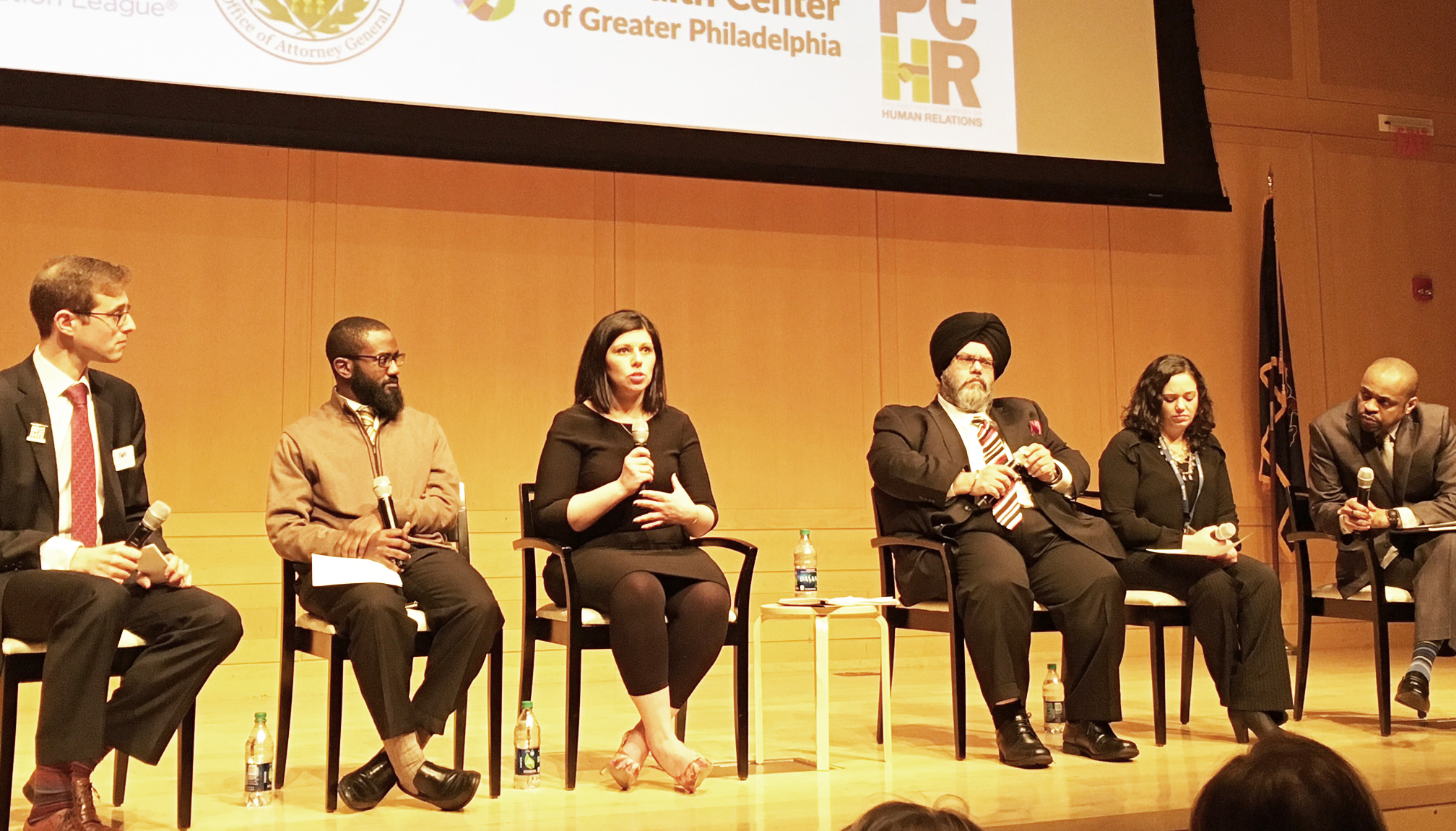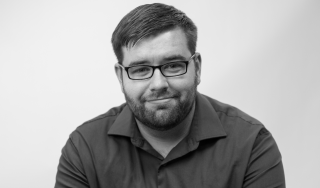
Responding to hate in Philadelphia
Government officials and organization representatives gathered on Jan. 17 to discuss the state of hate and bias in the U.S.
Attorney General Josh Shapiro said 2017 was a challenging year.
“We saw some things in this country that I’m not sure we were all prepared to see,” Shapiro said. “The president’s rhetoric has unfortunately given a newfound courage to cowardly bigots in this country.”
The attorney general was speaking to the more than 150 people in attendance at the second annual “Unifying our Communities, Responding to Hate” conference, which was held at the Constitution Center on Jan. 17. The program included a discussion on the state of hate and bias in the Philadelphia region and U.S. at-large.
The event was co-hosted by the Pennsylvania Attorney General’s Office, the Anti-Defamation League (ADL), the Interfaith Center of Greater Philadelphia, the Philadelphia Commission on Human Relations (PCHR) and the Department of Justice.
During his speech, Shapiro reflected upon some of the most outrageous instances in which Donald Trump has stoked the flames of hate in America since the infancy of his presidency.
It began mere days after Trump was sworn in when he instituted the Muslim travel ban. Shortly after, the president neglected to respond to the desecration of about 100 Jewish tombstones at the Mt. Carmel Cemetery in Philadelphia, as well as anti-Semitic threats against institutions and schools.
In August of 2017, violence erupted during the “Unite the Right” rally in Charlottesville, Virginia, where white nationalist James Alex Fields Jr. allegedly drove his car into a crowd of counter-protesters, killing 32-year-old Heather Heyer and injuring others.
Trump infamously responded to the violence by stating that there was “blame on both sides.”
“There are not good people on both sides of that. There are good people on one side and there are racists on the other,” Shapiro told the audience. “We needed our president at that moment to speak up and speak out, and he failed that test.”
The commander-in-chief went on to expand the scope of his intolerance when he declared that transgender people could no longer serve in the military. Then, he canceled Deferred Action for Childhood Arrivals (DACA), an Obama-era executive order that protected from deportation hundreds of thousands of immigrants.
Most recently, Trump exposed his racism when he reportedly referred to Haiti and African nations as “shithole countries” during a bipartisan meeting concerning the future of DACA.
Shapiro said he knows that the majority of Americans don’t share Trump’s bigoted views, and affirmed that now is not the time for silence.
“We need to make sure that we speak up to buttress those folks who feel like we do and to hold others accountable who see things the way the president does,” Shapiro said.
“I believe that now more than ever our leaders must speak with moral clarity,” he continued. “There is no room for mixed messages.”
[node:field_slideshow]
RELATED CONTENT
As support for Trump’s presidential campaign rose in 2016, so did the prevalence of actions motivated by hate.
According to FBI statistics, the number of hate crimes in the U.S. increased nearly 5 percent in 2016, and these numbers only account for reported hate crimes. The FBI’s study found that more than 50 percent of race-based crimes were directed toward African-Americans that year while crimes against Jews accounted for 53 percent of religious-based crimes.
Between 2015 and 2016, religious-based crimes against Muslims increased 19 percent, while crimes against LGBTQ communities were the third most common type of hate crime in 2016.
The Philadelphia area is not immune to this reality of bigotry, discrimination and injustice.
During the conference, Nancy Baron-Baer, Regional Director of the ADL, and Rue Landau, Executive Director of PCHR, gave examples of moments that revealed bias and hate in the region in the past year. They spoke of physical attacks against Latino immigrants, instances of hate-motivated vandalism and an increasing distribution of white supremacist propaganda.
Harpreet Singh Mokha is Regional Director of the Community Relations Service for the Department of Justice. During a panel discussion, he said that the Philadelphia area is blessed to have as many resources as it does to confront bias and hate, including the groups and governmental bodies that organized the conference.
While encouraging attendees to familiarize themselves with these services, Mokha emphasized that it's key for people to get to know the members of their community to build trust in addressing bias and hate at the local level.
“I’m always saying that you need to get to know your neighbors in front of you, to the left to the right, to the side of you, and get out of your box,” Mokha said. “We have to get out of our comfort zones and meet people.”
Many of the speakers at the event shared a common perspective on how Pennsylvanians can address hatred in their communities—if you see something, say something.
Newly sworn-in Philadelphia District Attorney Larry Krasner vowed that his office will vigorously go after hate crimes and he urged Philadelphians to assist him in this mission by reporting them.
“I ask you to be the neighbors,” Krasner said. “I ask you to be the ones who are willing to come forward to support that other person who may not feel strength so that, to the extent we can, those of us in law enforcement can lift those people up, protect their rights, and push back against this wave of hate.”










LEAVE A COMMENT: